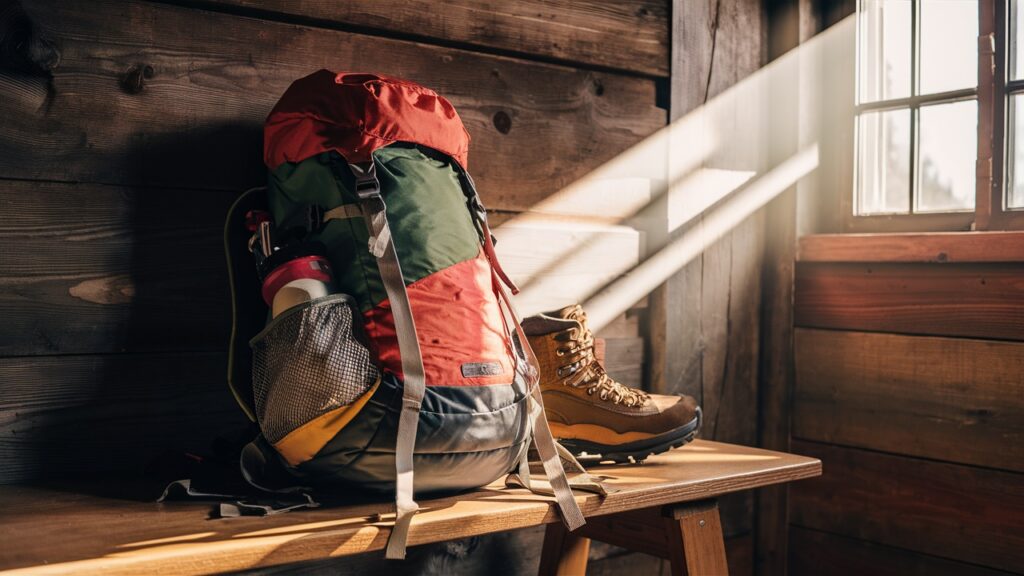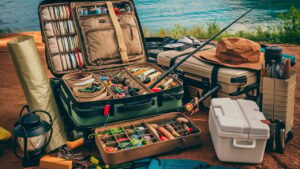An effective elk hunting backpack checklist includes essential gear like a sturdy backpack, food, water, and hunting tools. Prioritize organization to ensure quick access to frequently used items
**Introduction** Packing for an elk hunting trip requires careful consideration and organization. An ideal backpack should balance weight, accessibility, and durability. Knowing what to include can make a significant difference in your hunting experience. Essential items range from food and water to hunting gear and safety equipment.
A well-thought-out checklist helps you avoid unnecessary weight while ensuring you have everything needed for a successful hunt. By organizing your pack correctly, you can improve your mobility and comfort in the field. This guide will provide a comprehensive elk hunting backpack checklist, helping you prepare efficiently for your adventure in the wild.

Choosing The Right Backpack
Choosing the right backpack for elk hunting is essential. Size matters greatly in ensuring you have enough space for gear. A larger pack can hold more items but may be heavier. A smaller pack is lighter but limits what you can carry.
Comfort and fit are also crucial. Look for adjustable straps and a padded back. A good fit helps distribute weight evenly, reducing fatigue. Ensure the waist belt supports your hips well. This allows for better movement and stability on tough trails.
Must-have Gear For Elk Hunting
Navigation tools are essential for elk hunting. Carry a reliable GPS device to find your way. A good compass and a topographic map are also necessary. Ensure you know how to use them.
For communication devices, bring a fully charged cell phone or a satellite phone. These can help you stay in contact with your group. A portable power bank is useful for charging devices. Consider a two-way radio for quick communication.
Clothing Essentials
Layering for the weather is crucial during elk hunting. Start with a moisture-wicking base layer to keep sweat away. Use an insulating layer for warmth, like fleece or down. A waterproof outer layer protects against rain and wind. Adjust layers based on temperature changes.
Choosing the right footwear is vital for different terrains. Opt for hiking boots with good ankle support. Ensure they have waterproofing to keep feet dry. Insulation is important for colder conditions. Select boots with a sturdy grip for slippery surfaces.
Food And Water Necessities
Meal planning is essential for a successful elk hunting trip. Choose nutrient-dense foods that provide energy. Quick options like oatmeal packets and granola bars are great for breakfast. For lunch, consider bagels with peanut butter and jerky. Dinner can include Mountain House meals or Ramen noodles. Don’t forget to pack snacks like trail mix or pudding cups.
Staying hydrated is just as important. Aim to drink at least 2-3 liters of water daily. Carry a reusable water bottle for convenience. Use water purification tablets or filters for safe drinking water. Energy drinks can also help replenish electrolytes during long hikes. Proper hydration ensures you stay focused and energized while hunting.
Shelter And Sleep System
Choosing the right tent is essential for elk hunting. Look for a lightweight and durable option. Ensure it has enough space for gear and sleeping bags. A two-person tent often provides ample room.
Sleeping bags should be warm and compact. Opt for a bag rated for cold weather. A sleeping pad adds comfort and insulation from the ground. Choose a pad that is lightweight and easy to pack.
Consider compressible sleeping bags to save space. Also, check for water-resistant materials to keep you dry. Prioritize quality for a comfortable night’s rest in the wilderness.
Hunting Equipment Checklist
Choosing the right firearm or bow is crucial for a successful elk hunt. Ensure your weapon is suitable for the terrain and conditions. A reliable firearm or a well-tuned bow enhances your chances.
Always pack enough ammunition for the hunt. A minimum of 20 rounds is recommended. Bring extra if you plan to practice or expect a longer hunt.
Maintenance of your firearm or bow is vital. Carry a cleaning kit to keep your equipment in top shape. Regular checks ensure functionality during the hunt.
Don’t forget to include spare parts. Extra strings or bolts can save the day. Being prepared can make a significant difference in your hunting experience.
Safety And First Aid
Safety is crucial during elk hunting. A well-stocked first aid kit can save lives. Include essentials like band-aids, gauze pads, and antiseptic wipes. Don’t forget pain relievers and tweezers for splinters or ticks. A triangular bandage can help with injuries.
Emergency signaling is important for safety. Carry a whistle for attention. A mirror can reflect sunlight to signal rescue teams. A signal mirror is lightweight and effective. Always have a flashlight for visibility at night.
Stay prepared and ensure everyone knows how to use these items. Regularly check your kit to replace expired supplies. Safety should always be your top priority.
Miscellaneous Items
Camera is essential for capturing memories of your elk hunt. Bring extra batteries to avoid missing moments. A fully charged battery ensures your camera lasts throughout the trip.
Game processing tools are critical for a successful hunt. Include a sharp knife for skinning and cutting meat. A bone saw helps with larger game. Don’t forget gloves for hygiene and safety.
Pack game bags to transport your meat. Lightweight muslin bags are perfect for this purpose. A small thermometer checks meat temperature during processing.
Frequently Asked Questions
How To Pack A Backpack For Elk Hunting?
Pack your elk hunting backpack by placing bulky items like sleeping bags at the bottom. Position heavy gear above your waist and close to the frame. Keep frequently used items on top for easy access. Ensure optics and tripods are securely stored.
Aim for a balanced, quiet pack.
How Big Of A Bag Do You Need For Elk Hunting?
For elk hunting, a bag between 60 to 80 liters is ideal. This size accommodates essential gear, food, and water. Ensure it has a sturdy frame for heavy loads. Choose a backpack with compartments for organized packing and easy access during the hunt.
How Much Does A 5 Day Elk Pack Weigh?
A typical 5-day elk pack weighs between 40 to 70 pounds. This weight includes food, gear, and personal items. Adjust the weight based on your specific needs and preferences. Consider packing lightweight equipment to reduce strain during your hunt.
What Food To Pack For Elk Hunt?
For an elk hunt, pack lightweight, high-energy foods. Include oatmeal packets, jerky, granola bars, and instant meals like Mountain House. Add bagels with peanut butter, cup noodles, and snacks like pudding. Don’t forget hydration options like hot cocoa and emergency drink mixes.
Plan for easy, quick meals.
Conclusion
Packing the right gear is crucial for a successful elk hunting trip. A well-organized backpack can make a significant difference in your comfort and efficiency. Use this checklist to ensure you have everything you need. Proper preparation not only enhances your experience but also increases your chances of a successful hunt.
Happy hunting!








